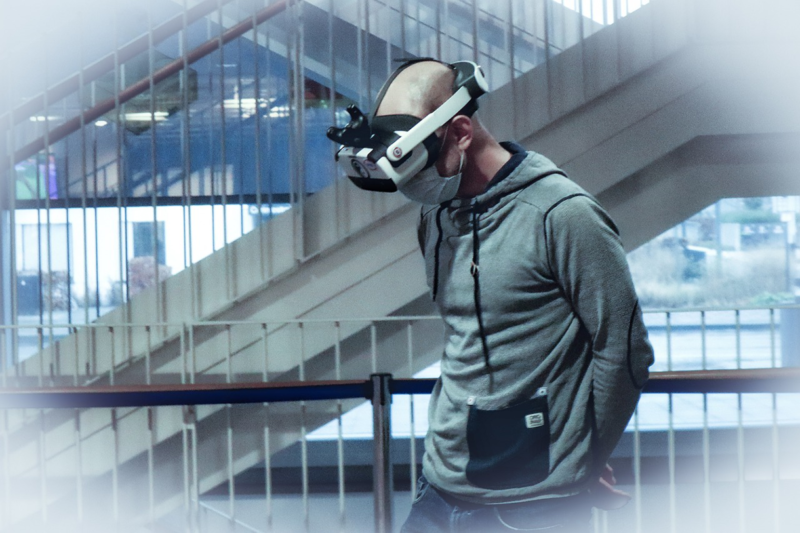
Virtual reality (VR) is no longer just a futuristic concept—it’s becoming a major player in the entertainment industry. From immersive gaming experiences to virtual concerts and movie viewings, VR is changing the way people interact with digital content. But is it truly the future of entertainment, or just a passing trend? In this article, we’ll explore the rise of virtual reality in entertainment, its potential, and what the future might hold.
1. Virtual Reality in Gaming
Gaming is one of the areas where virtual reality has made the most significant impact. With VR headsets like the Oculus Rift, PlayStation VR, and HTC Vive, players can step inside virtual worlds and interact with them in ways that weren’t possible before. VR gaming creates an immersive experience that makes the player feel like they’re actually inside the game.
- Why It Works: VR gaming enhances immersion, offering a 360-degree perspective where players can look around, move, and engage with their environment as if they were physically there.
- Popular Games: Games like ‘Beat Saber,’ ‘Half-Life: Alyx,’ and ‘The Walking Dead: Saints & Sinners’ have set the standard for high-quality VR experiences, proving that the technology can deliver compelling content.
- Challenges: While VR gaming has grown in popularity, there are still challenges such as motion sickness, the cost of VR equipment, and the development of fully realized game worlds.
2. Virtual Concerts and Live Events
During the COVID-19 pandemic, virtual concerts and live events became more prominent as in-person gatherings were restricted. Artists and event organizers turned to virtual reality platforms to create immersive concert experiences where fans could watch performances in real-time, interact with other attendees, and feel like they were part of the crowd, all from the comfort of their homes.
- Recent Successes: Musicians like Travis Scott and Ariana Grande have performed in virtual concerts within the game ‘Fortnite,’ attracting millions of viewers. Virtual reality platforms like Wave have also hosted music events where fans can experience live performances in virtual spaces.
- Expanding the Experience: VR concerts allow for creative possibilities beyond traditional stages, such as surreal visuals, interactive elements, and customized virtual avatars for fans.
- Is It the Future?: While VR concerts are gaining traction, they’re unlikely to fully replace in-person events. Instead, they offer an additional way to enjoy live performances and expand audience reach.
3. VR in Movies and Storytelling
Virtual reality is also transforming the movie industry. VR films allow viewers to become part of the story by stepping into immersive environments where they can explore and engage with the narrative from different perspectives. This offers a new way of storytelling that traditional films cannot match.
- Immersive Storytelling: VR filmmaking puts the viewer in the center of the action, making them an active participant rather than a passive observer. This has opened up new possibilities for interactive storytelling, documentaries, and even horror films.
- Notable Projects: Projects like ‘The Invisible Hours’ and ‘Wolves in the Walls’ have garnered attention for their innovative approach to blending storytelling with VR technology.
- Challenges to Overcome: Creating high-quality VR films requires a new set of skills and significant resources. There’s also the challenge of making the experience comfortable for viewers over extended periods.
4. The Social Aspect of Virtual Reality
Virtual reality isn’t just about gaming or entertainment; it’s also changing how people interact socially. Platforms like VRChat and Facebook Horizon allow users to create avatars, explore virtual worlds, and engage in social activities with others from around the world. Whether it’s attending virtual meetups, playing games, or simply hanging out, VR is enabling new forms of social interaction.
- Virtual Communities: In VR environments, users can form communities based on shared interests, build relationships, and explore virtual spaces together. This adds a new layer of interaction that goes beyond traditional social media platforms.
- Real-World Applications: Companies are exploring the use of VR for virtual meetings, conferences, and remote team collaboration, especially in light of the increased demand for remote work solutions.
- Social Challenges: While VR offers new social experiences, there are still concerns about isolation, overuse, and the potential for negative social behavior in virtual spaces.
5. The Future of VR in Entertainment
As virtual reality technology continues to evolve, its potential in the entertainment industry is vast. Advancements in VR hardware, software, and content creation are making it more accessible to the general public, and its applications are expanding beyond gaming, movies, and concerts.
- Affordability and Accessibility: As VR technology becomes more affordable and user-friendly, it will likely become a more common part of home entertainment systems. VR headsets are also becoming more portable and wireless, improving the user experience.
- Content Development: With more companies investing in VR content, we can expect to see an increase in VR experiences across different genres, from educational VR experiences to fitness programs and virtual travel experiences.
- Integration with Other Technologies: VR is expected to integrate with other emerging technologies like augmented reality (AR), artificial intelligence (AI), and 5G, creating even more immersive and seamless entertainment experiences.
Is VR the Future of Entertainment?
While virtual reality is making waves in the entertainment industry, it may not completely replace traditional forms of entertainment. Instead, VR is likely to coexist with existing media, offering new and innovative ways for people to engage with content. For some, VR may become the preferred medium for certain experiences, while others will still enjoy the tactile and communal aspects of in-person events and traditional gaming or film.
- Enhancing, Not Replacing: Virtual reality will continue to enhance the entertainment industry, offering immersive experiences that complement traditional media. It’s not about replacing existing formats, but expanding the possibilities of how we engage with entertainment.
- Challenges Ahead: To reach its full potential, VR must overcome challenges like accessibility, affordability, and creating diverse, high-quality content. As technology improves and more creators invest in VR, these hurdles will likely diminish over time.
Conclusion
Virtual reality is transforming entertainment, offering immersive and interactive experiences in ways we never thought possible. From gaming and live events to movies and social interaction, VR is expanding the boundaries of what entertainment can be. While it’s unlikely to completely replace traditional media, it’s clear that VR is here to stay, and its influence on the future of entertainment will only continue to grow.







